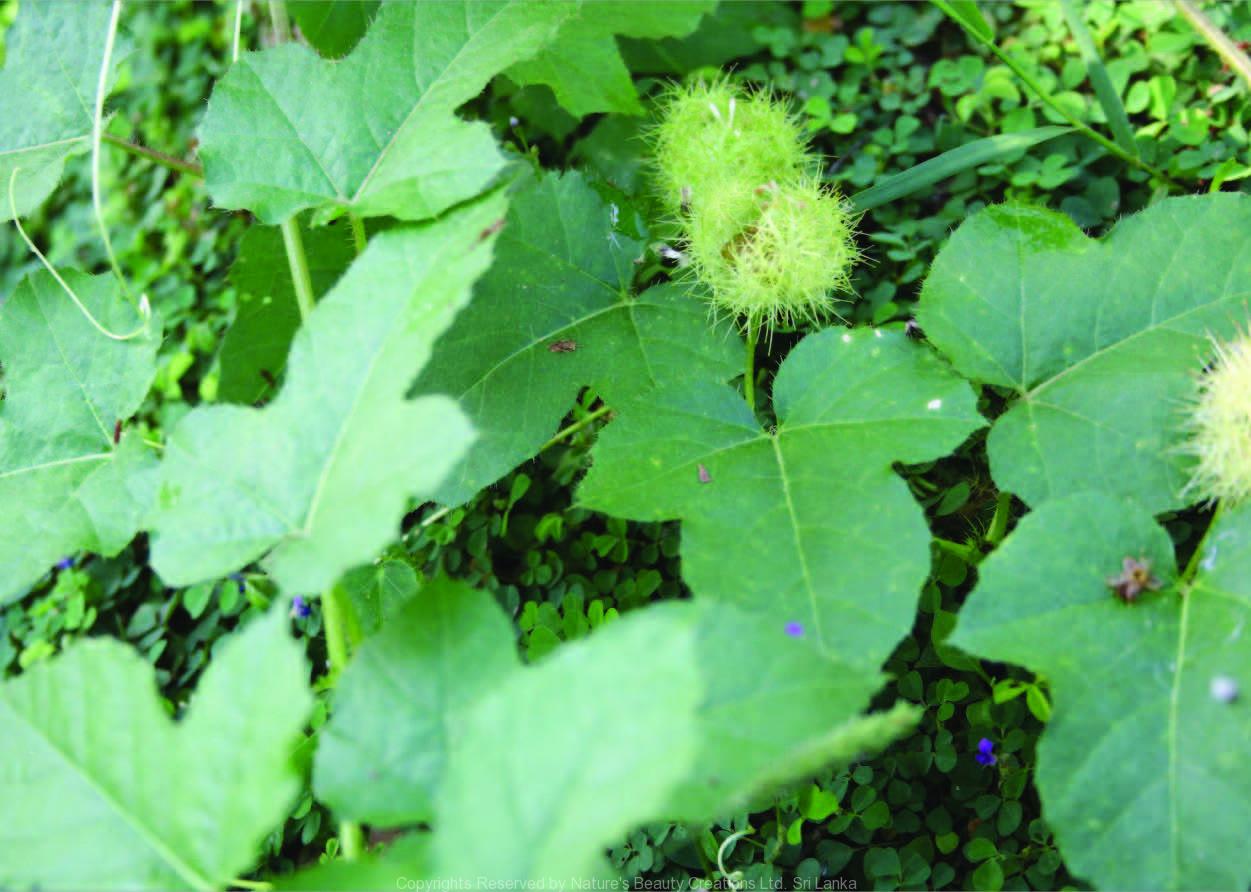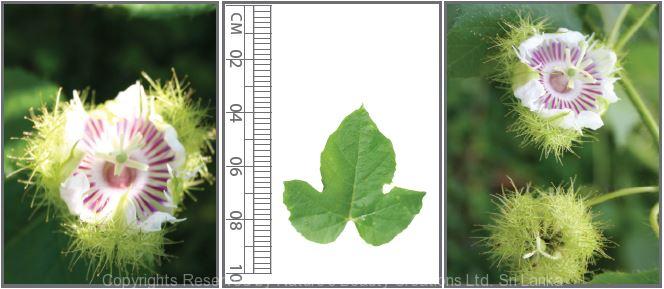

Traditional Knowledge
Useful plant parts :
Whole plant and leaf
Uses in traditional medicine :
- Herbal tea prepared from dried leaves is taken to reduce blood glucose levels
- Leaves are used to treat giddiness, headache, biliousness and asthma
- Dried plant is used for sore throat
Scientific Research
Chemical constituents:
Polyketide α-pyrones: passifloricins A–C, flavonoid: ermanin from leaf resin; cyanohydrin glycosides: tetraphyllin A and B, tetraphyllin B sulphate, deidaclin and volkenin, valine derived glycoside: linamarin from seeds
Bioactivity :
Ethanol and acetone extracts of leaves: antibacterial, analgaesic, anti-inflammatory; ethanol extract of whole plant: antiulcer, antioxidative
Clinical:
Note :
Ripe fruits are edible
References : Dhawan, K. et al., (2004), Passiflora: a review update, Journal of Ethnopharmacology, 94, 1–23. Echeverri, F. et al., (1991), Ermanin: An insect deterrent flavonoid from Passiflora foetida resin, Phytochemistry, 30(1), 531-551. Echeverri, F. et al., (2001), Passifloricins, polyketides α-pyrones from Passiflora foetida resin, Phytochemistry, 56(1), 881-885. Krishnaven, A. and Thaakur, S. R., (2008), Pharmacognostical and preliminary phytochemical studies of Passiflora foetida, Anc Sci Life, 27(3), 19-23. Mohanasundari, C. et al., (2007), Antibacterial properties of Passiflora foetida L. – a common exotic medicinal plant, African Journal of Biotechnology, 6(23), 2650-2653. Sathish, R. et al., (2011), Antiulcer and antioxidant activity of ethanolic extract of Passiflora foetida L., Indian J Pharmacol, 43(3), 336-9. Sasikala, V. et al., (2011), Analgesic and anti-inflammatory activities of Passiflora foetida L., Asian Pacific Journal of Tropical Medicine, 1, 600-603.
Copyrights Reserved By
Natures Beauty Creations




